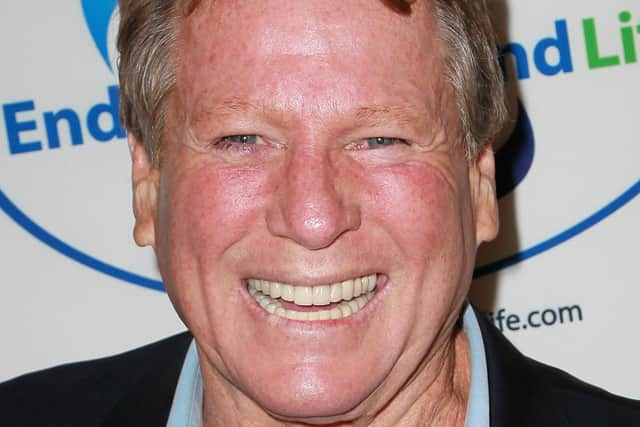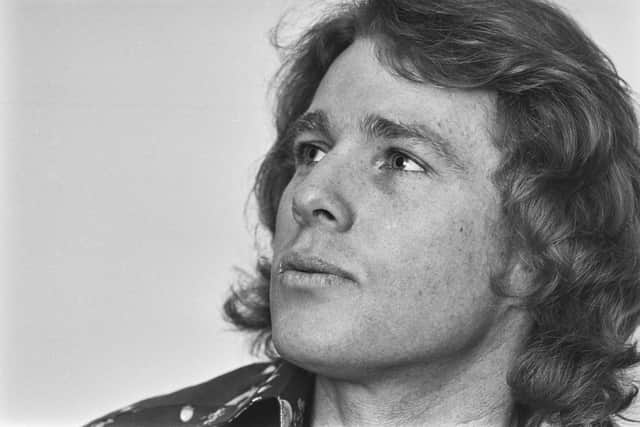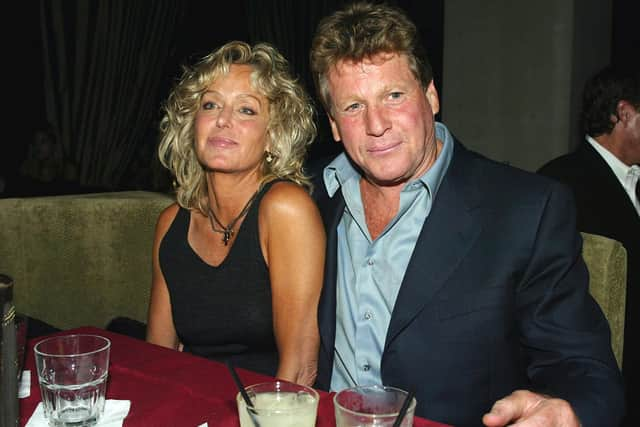Scotsman Obituaries: Ryan O'Neal, Hollywood actor who found early fame in Love Story


Few actors have made a bigger impact in a breakthrough role than the impossibly handsome Ryan O’Neal did as the young suitor who sees his girlfriend die of cancer in Love Story, the biggest hit of 1970 and the movie that gave us the rather dodgy philosophy of “Love means never having to say you’re sorry”.
Love Story made O’Neal one of the most bankable stars in the world, ranked No 2 in an annual poll, behind Clint Eastwood, ahead of Steve McQueen and Robert Redford. But the thing about breakthrough roles is that you are meant to build on them.
Advertisement
Hide AdAdvertisement
Hide AdIt seemed like O’Neal, with his curly golden hair, blue eyes and an Oscar nomination behind him, had the film world at his feet. And he had another big hit with the Depression Era road movie Paper Moon, one of a series of films he made with director Peter Bogdanovich.


The trouble was that in Paper Moon he was overshadowed by daughter Tatum O’Neal, cast in the role of his precocious travelling companion. She was eight, had no acting experience and became the youngest winner of a regular acting Oscar ever. She said her father resented her success, and they were estranged for years.
Off screen O’Neal was not the angelic character his Love Story image suggested. When he was just 18 he did prison time for an attack on a stranger at a party and at home and elsewhere one word out of place could end in violence. “My father terrorised me,” Tatum O’Neal wrote in her memoirs. She said her father was particularly hard on her brother Griffin. “He was always covered with bruises, which he’d account for with crazy stories about falling downstairs with his hands in his pockets.”
The London Standard newspaper ran an article under the headline “Is Ryan O’Neal the worst father in Hollywood?” when O’Neal was arrested after a fight with Griffin that culminated in O’Neal firing a gun in his son’s direction “by accident”. O’Neal was in his sixties at the time.
On screen he struggled to advance his image beyond that of the young heartthrob. Critics felt he lacked the lightness of touch for the screwball comedy What’s Up Doc?, with Barbra Streisand. He certainly lacked the weight to play a general in the Second World War drama A Bridge Too Far, alongside Oscar-winning top brass Gene Hackman, Anthony Hopkins and Sean Connery. “Can I help it if I photograph like I’m 16 and they gave me a helmet that was too big for my head?” he said.


And although he landed the title role in Stanley Kubrick’s prestige period drama Barry Lyndon, it was one of Kubrick’s less successful films, with O’Neal considered miscast and anachronistic.
Latterly O’Neal returned to television, where he first enjoyed success in the 1960s as romantic interest in the landmark American soap opera Peyton Place.
O’Neal was born Charles Patrick Ryan O’Neal, into a Hollywood family in 1941. His father was Charles “Blackie” O’Neal, a screenwriter whose credits include the classic horror movie The Seventh Victim and, on television, Lassie and The Untouchables. His father steered O’Neal’s violent energy towards boxing. At 17 he went to Germany with his father, who was working on TV series Tales of the Vikings, and O’Neal got his first screen experience as an extra and stuntman on the show.
Advertisement
Hide AdAdvertisement
Hide AdHis father helped him get his start, with a tiny role as a bellboy in an episode of The Untouchables and various other small roles. They led to him being cast as one of the regulars on Empire, a short-lived modern western series, and then as Rodney Harrington, bad-boy son of a wealthy mill owner in Peyton Place. He appeared in 500 episodes in the second half of the 1960s.
He made a fleeting appearance as one of Dustin Hoffman’s fellow students in The Graduate and got his first big-screen starring role in The Big Bounce, an adaptation of an Elmore Leonard novel. The New York Times review quoted one character’s line “Have you ever thought of doing something else?”, adding “It's a question that could have been put to almost everyone concerned with The Big Bounce.”
He fared better in The Games, Michael Winner’s underrated movie about four runners, from four different countries, preparing for the Olympic marathon in the days when marathons still had that aura of the unknown. As a cineaste and runner, I have watched and enjoyed it repeatedly. It was scripted by Erich Segal, who also wrote Love Story. Segal recommended O’Neal for the role of the privileged Harvard jock Oliver Barrett IV, who falls for working-class music student Jenny Cavilleri, played by Ali MacGraw. But it turns out she has a rare form of leukaemia, in which the patient seemingly becomes ever more beautiful before finally passing away. But audiences were not looking for dramatic realism.
It ends in tears, for the characters and audiences. But not for the Hollywood money men, who were prepared to turn a blind eye to O’Neal’s temper and personal issues as long as he kept bringing in the punters. Sadly, that was not for long. His film career stuttered along until he returned to his Love Story role in 1978 in Oliver’s Story. But the public who had embraced the notion of MacGraw as the love of his life were not taken by the notion of him starting over with Candice Bergen.
O’Neal struggled with the reversal in his professional career, and with personal relationships and other issues, including drug and alcohol abuse. By his mid-thirties he had gone through two marriages and two divorces. His second marriage was to his Peyton Place co-star Leigh Taylor-Young. In the late 1970s he began a rather volatile relationship with Farrah Fawcett and starred opposite her in TV movie Small Sacrifices and short-lived series Good Sports. He spent a decade on detective drama Bones from 2006.
Meanwhile Tatum O’Neal had led an equally troubled life, including drug abuse and a fiery marriage to John McEnroe. After years of estrangement she and her father finally reconciled. O’Neal’s relationship with Fawcett continued, on and off, until her death in 2009. O’Neal is survived by Tatum, Griffin and two other children.
Obituaries
If you would like to submit an obituary (800-1000 words preferred, with jpeg image), or have a suggestion for a subject, contact [email protected]
Comments
Want to join the conversation? Please or to comment on this article.